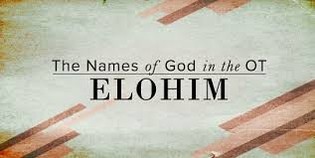"...Thy throne O God..." Hebrews 1: 8-9
There is some uncertainty as to the precise translation of this verse. Two possibilities exist:
"Thy throne, O God, is for ever and ever" (A.V.)
"God is thy throne for ever and ever" (R.S.V. mg.)
Since only the first of these translations is useful for the trinitarian, it will be assumed, for this study, that this is the correct translation. "Therefore God, even thy God" (vs. 9) is evidence that Christ is not literally God. Since the Father is the God of Jesus, then clearly Jesus is not himself "Very God". (See also John 20:17).
Hebrews 1:8 is a quotation from Psalm 45:6. In this Psalm the Hebrew word "elohim" is translated "God". The word "elohim" is used of Moses relationship with Pharaoh: "And the LORD said unto Moses, See, I have made thee a god {elohim} to Pharaoh". (Exod. 7:1). It also is used of the judges of Israel. (Psa. 82:6 cf. John 10:34; Exod. 22:9, 28). Persons who are divinely appointed and made strong by Yahweh are sometimes referred to as "God", but this does not imply they are literally God, or somehow persons within the co called 'Godhead', which itself is a manufactured word to make God sound like a group (it usually means 'divinity' in the Greek).
In "the world to come" (Hebrews 2:5), the Son will be called "The mighty God" (Isaiah 9:6), although "now we see not yet all things put under him." (Hebrews 2:8). In the Kingdom Age, the Son will reign with the power and authority of his Father. (1 Cor. 15:24-28). The writer to the Hebrews points out, however, that the "more excellent name" obtained by the Son is by virtue of his personal worthiness and elevation by his Father, and not by the Son re-claiming suppose divested powers of the Godhead, as trinitarians assert: "Thou hast loved righteousness, and hated iniquity; therefore God, even thy God, hath anointed thee with the oil of gladness above thy fellows." (Hebrews 1:9).
We also know that the whole context of Ps 45:6, from where this passage is quoted, is calling this "God" "THE MOST EXCELLENT OF MEN"!! Ps 45:2 We can see that men are indeed called God by
God Himself (as Jesus said in Jn 10:34-36), but in no way meaning that they are literally God. This can be further understood by reading Origen's teachings about "Gods" on this website.
Clearly the context of the Son here being called "O God" is defined when it then says, "...therefore God, EVEN THY GOD, has anointed you..." Heb 1:9, so therefore the context demands that he is not
being called 'very God' because we know 'the God' has no God!




